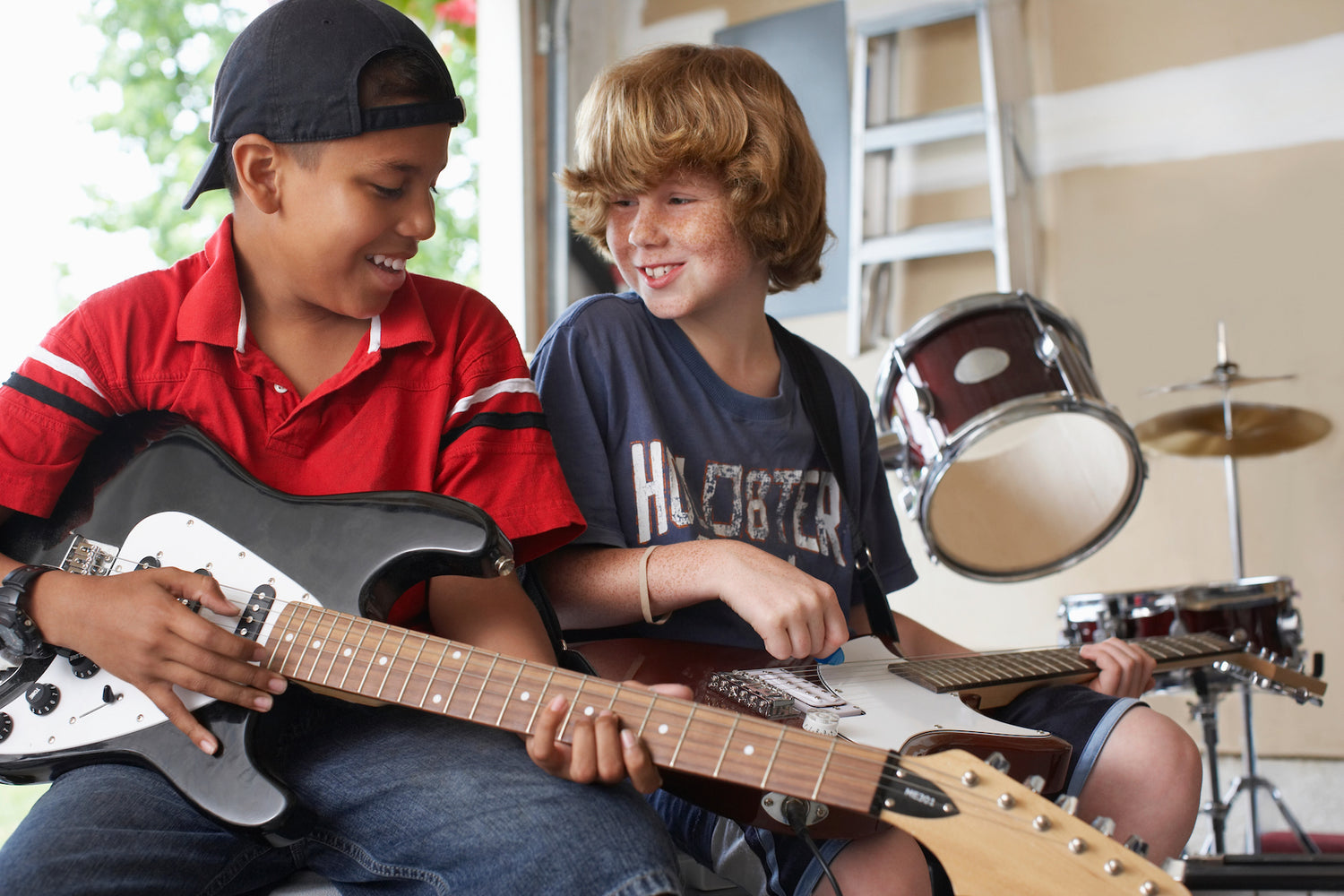How to Transition from Video Games to Guitar in 6 Easy Steps

In a world where video games often captivate the attention of children and teenagers, it's crucial for parents to introduce more creatively enriching activities like music learning. This guide focuses on transitioning children from video games to learning the guitar, a journey that is both rewarding and enriching. Let's dive into a six-step process that parents can use to foster a love for music and guitar lessons in their children.
Step 1: Understanding the Impact of Video Games
-
Education Over Entertainment:
- As a parent, it's important to educate yourself about the effects of excessive screen time and video games on children's development. Understanding these impacts can help you prioritise educational activities like music learning.
Step 2: Creating a Musical Substitute
-
Igniting Musical Interest:
- Discover your child’s musical preferences. Perhaps watch a live performance by a renowned guitarist to spark interest. Purchasing a guitar or related accessories can also reignite their passion for music.
- For example: Why not attend a local music festival or concert to give your child a taste of live musical performances?
Step 3: Accessibility to Practice
-
Encouraging Regular Practice:
- Make practicing the guitar as accessible as possible. Keep the guitar on a stand in a common area rather than tucked away in a case. This visibility encourages spontaneous practice.
- Tip: Create a welcoming and distraction-free practice area in your home which is also easily accessible.
Step 4: Rewarding Practice, each time
-
Positive Reinforcement:
- Offer small rewards each time your child completes their daily guitar practice of 15 to 20 minutes. This positive reinforcement can help build a consistent practice routine.
- Example: Give a small treat or verbal praise to celebrate their daily practice achievements.
Step 5: Finding a Motivating Teacher
-
Seeking Inspirational Guidance:
- Enroll your child in a music school or with a teacher who can provide a creative and engaging learning environment. For instance, at Rising Tones, we offer regular student concerts along with an ecosystem of learning music effectively which serve as great motivation.
Step 6: Cultivating a New Identity
-
Shaping a Musical Persona:
- Regular performances, like student concerts, can shift a child’s identity from being a gamer to a musician. This identity change is profound and fosters a deep love for music.
- We have stories of several young guitarists who embraced their new identity as a musician, which they absolutely love, leading to a decrease in video game time and an increase in music related passion.
Conclusion
Transitioning from video games to learning the guitar requires patience, understanding, and support. By following these six steps, parents can guide their children towards a fulfilling musical journey, enhancing their skills and enriching their lives with the joy of music.
Jeet Samant, Music Mentor and Composer
With a rich journey in music since 2005, Jeet Samant stands out as a seasoned music mentor and composer. He has guided hundreds of students, nurturing their musical talents and helping them find their unique voice in the world of music. As a skilled songwriter and melody writer, Jeet has a flair for crafting songs that resonate deeply with audiences. His expertise extends to music production, where his innovative techniques and keen ear for detail have produced captivating musical pieces. Jeet’s passion for music is not just about creating melodies; it's about inspiring and empowering a new generation of musicians.






